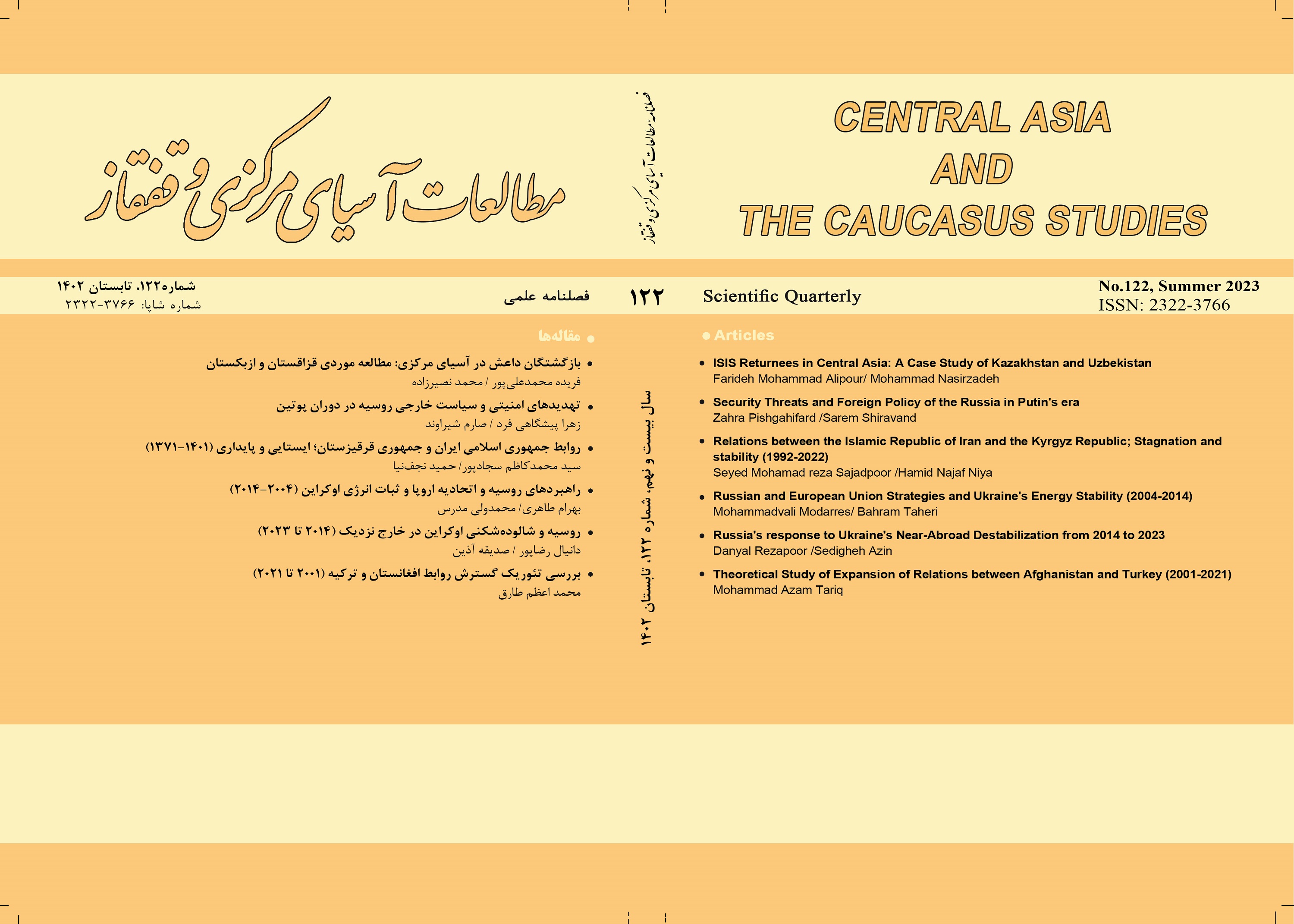Document Type : Research Paper
Abstract
The Russian Federation in the post-Soviet era has faced with many security threats. This article has studied the approaches of the Russian Federation under Vladimir Putin seeks to answer the fundamental question, " Why has Russia put realistic pragmatism and foreign policy codes on its foreign policy agenda under Putin?" The paper's hypothesis is that "the geopolitical threats and consequently the fragility of the Russian Federation's national security in the post-Cold War space have been the most important driver of pragmatism in its foreign policy". security threats at both domestic and foreign levels seem to undermine Russian security at three levels: domestic, regional and systemic. This has prompted Putin whit comprehensive approach to concept of security, to turn to Realistic pragmatism foreign policy to counter these threats. Research findings show that behavioral codes such as selective engagement, Emphasis on the formation of a multipolar system in the international system and the strengthening of regionalization, the strategy of reviving its power as a global power, economization of foreign policy, Russian-oriented institutionalism in Eurasia, The policy of looking to the East and cooperating with independent governments from the West and counter-terrorism which all have been designed and implemented to safeguard Russia's interests and security and reduce the potential impact of these threats on Russian national security. In this paper, the research method is in the form of formative and analytical explanations and attempts to find the root of the relationship between the dependent and independent variables of the article.
Keywords

